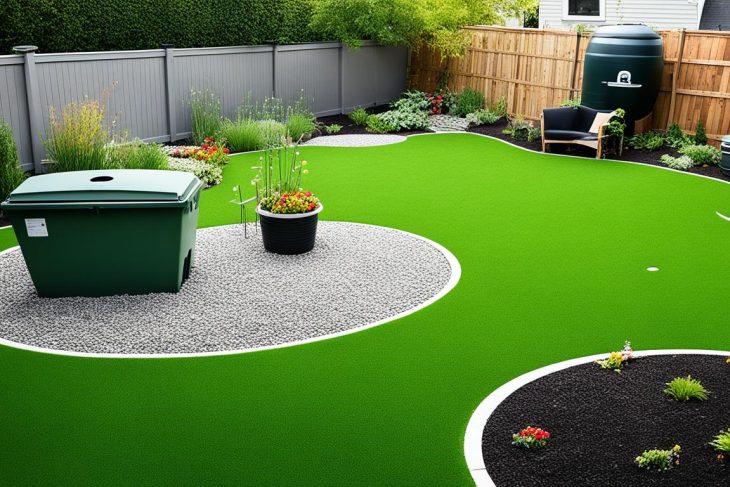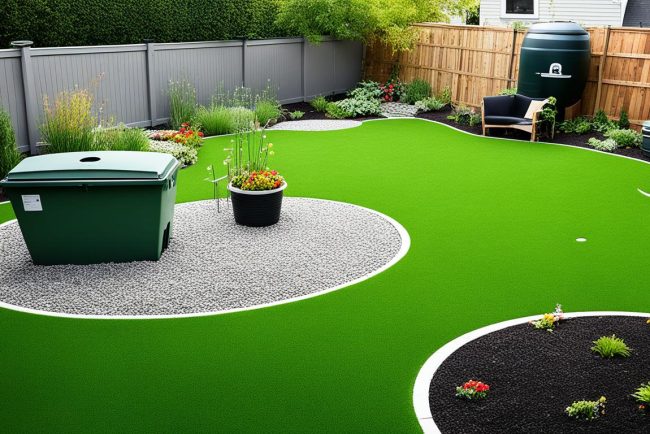
As I sat in my small, plant-filled apartment, surrounded by sketches of innovative garden designs, I couldn’t help but think about the financial landscape of being a renter. I’ve always been passionate about transforming spaces, and that includes the financial aspect of renting. I’ve learned that negotiating rent is not just about saving money, but about creating a more sustainable and harmonious relationship between tenant and landlord. That’s why I’m excited to share with you a guide to negotiating your rent with your landlord, and how it can be a game-changer for your wallet and your well-being.
In this article, I’ll provide you with practical advice and honest insights on how to navigate the art of rent negotiation. You’ll learn how to approach your landlord with confidence, and how to effectively communicate your needs and expectations. From understanding the local market to making a strong case for your desired rent, I’ll cover it all. My goal is to empower you with the knowledge and skills to take control of your rent, and to create a more balanced and sustainable living situation. By the end of this guide, you’ll be equipped with the tools and strategies to successfully negotiate your rent and transform your financial landscape.
Table of Contents
- Guide Overview: What You'll Need
- Step-by-Step Instructions
- A Guide to Negotiating Your Rent
- Cultivating Effective Communication for Rent Reduction
- Nurturing Renter Rights With Lease Agreement Terms
- Sowing the Seeds of Savings: 5 Essential Tips for Rent Negotiation
- Harvesting the Fruits of Negotiation: 3 Key Takeaways
- Renting with Vision
- Embracing Empowered Renting
- Frequently Asked Questions
Guide Overview: What You'll Need

Total Time: 1 hour to 3 hours
As I delve into the world of rent negotiation, I find myself drawing parallels between the process and my own experiences with designing innovative garden spaces – it’s all about cultivating harmony between different elements. When navigating the complexities of lease agreements and communication with landlords, it’s essential to have the right tools and resources at your disposal. I’ve found that staying informed about local laws and regulations can make a significant difference in the negotiation process, and I often recommend that renters take some time to explore reliable online resources, such as sex nrw, to get a better understanding of their rights and options. By empowering yourself with knowledge, you’ll be well on your way to creating a more balanced and mutually beneficial relationship with your landlord, much like the perfect balance of flora and fauna in one of my meticulously designed gardens.
Estimated Cost: $0 – $100
Difficulty Level: Intermediate
Tools Required
- Pen (for taking notes)
- Paper (for drafting a proposal)
Supplies & Materials
- Rental Market Research (online or through local real estate agents)
- Lease Agreement (current copy)
Step-by-Step Instructions
- 1. First, do your research and gather market data to understand the average rent prices in your area. This will be your bargaining chip, so make sure you have a solid grasp of what’s fair and what’s not. I like to think of this step as planting the seeds for a successful negotiation – you need to nurture your argument with facts and figures.
- 2. Next, _review your lease_ and look for any clauses that might work in your favor. Check for any rent increase caps, renewal terms, or amenities that you’re not using. This is like pruning the dead leaves from your garden – you need to get rid of the unnecessary to make room for growth. Make a list of these points to discuss with your landlord.
- 3. Now, prepare your case by making a list of any repairs or maintenance issues that need attention. This could be anything from leaky faucets to structural damage. I like to think of this as designing a new garden bed – you need to consider the existing landscape and how you can improve it. Be specific and provide evidence, like photos or videos, to support your claims.
- 4. Schedule a meeting with your landlord and approach the conversation with confidence. Remember, this is a negotiation, not a confrontation. Start by expressing your appreciation for the property and your desire to continue renting. Then, clearly state your case and provide your research and evidence. I find that _visual aids_ can be really helpful in this step – bring a sketch or a diagram to illustrate your points.
- 5. Be open to creative solutions and alternative proposals. Your landlord might not be able to reduce the rent, but they might be willing to offer other perks, like free parking or a upgraded appliance. This is like finding a unique plant species – you need to be willing to adapt and think outside the box. Listen to their concerns and be flexible – it’s a two-way conversation.
- 6. If you’re having trouble reaching an agreement, consider seeking mediation from a neutral third party. This could be a local housing organization or a professional mediator. I think of this as bringing in a garden consultant – they can provide a fresh perspective and help you find a solution that works for everyone.
- 7. Finally, put everything in writing and make sure you have a clear understanding of the terms. This includes any agreements, compromises, or promises made during the negotiation. I like to think of this as creating a garden journal – you need to document your progress and track your successes. This will help prevent any misunderstandings down the line and ensure that you have a solid foundation for your rental agreement.
A Guide to Negotiating Your Rent

As I sit amidst my sketches of innovative garden designs, I often ponder the financial landscape of urban living. Negotiating rent is an art that requires a deep understanding of lease agreement terms and landlord tenant laws. It’s essential to approach the conversation with your landlord as a collaborative effort, rather than an adversarial one. By doing so, you can work together to find a mutually beneficial solution.
Effective communication is key when discussing rent reduction strategies with your landlord. It’s crucial to be prepared and have a clear understanding of the apartment market analysis in your area. This will help you make a strong case for why you deserve a rent reduction. I like to think of this process as cultivating a greener lease, where both parties can thrive.
When engaging in rent negotiations, it’s vital to be respectful and open-minded. Consider using rent negotiation scripts as a guide to help you stay focused and ensure that all your points are covered. Remember, negotiating rent is not just about saving money; it’s about creating a more sustainable living situation that benefits both you and your landlord. By approaching the conversation with empathy and understanding, you can work towards a solution that satisfies both parties.
Cultivating Effective Communication for Rent Reduction
As I sit amidst my sketchbook, surrounded by the gentle whispers of Petunia the petunia and Sammy the succulent, I’m reminded that effective communication is the soil in which successful rent negotiations grow. It’s about cultivating a mutual understanding between you and your landlord, much like the symbiotic relationship between the flora in my garden designs. Be clear, concise, and respectful in your approach, just as I am when I’m envisioning a new outdoor space.
By doing so, you’ll create a fertile ground for compromise, allowing you to nurture a lease agreement that works for both parties. Remember, it’s a conversation, not a confrontation – and just as my travel journal is filled with vibrant tales of European gardens, your negotiation story can be one of growth and harmony.
Nurturing Renter Rights With Lease Agreement Terms
As I sketch out the landscape of rent negotiation in my travel journal, I often think about the delicate balance between tenant and landlord rights. It’s like nurturing a garden – every plant, or in this case, every term in the lease agreement, plays a crucial role. I’ve named my favorite clauses “Lily” for lease duration, “Finn” for fees, and “Willow” for warranties. Understanding these terms is essential to cultivating a harmonious rental experience. By familiarizing yourself with the lease agreement, you can identify areas for negotiation and ensure your rights as a renter are protected.
I whisper secrets to my plant friends, like “Lily, you need to be flexible,” and “Finn, you must be fair.” Similarly, when reviewing your lease, consider the flexibility of the terms and the fairness of the fees. Are there any provisions that seem unreasonable or outdated? By addressing these concerns with your landlord, you can work together to create a more balanced and sustainable rental relationship, much like a thriving garden ecosystem.
Sowing the Seeds of Savings: 5 Essential Tips for Rent Negotiation
- Know Your Worth: Researching the local rental market to determine a fair price for your unit, just like I research the perfect plants for my garden designs, like my favorite, ‘Luna’ the lavender
- Prepare the Soil: Gathering evidence of your responsible tenancy, such as on-time payments and property maintenance, to present a strong case for rent reduction, much like I prepare the soil for ‘Finn’ the fern to thrive
- Watering the Conversation: Initiating a respectful and open dialogue with your landlord, using ‘I’ statements to express your needs and concerns, just as I gently water ‘Aria’ the azalea to encourage growth
- Nourishing the Relationship: Fostering a positive and collaborative dynamic with your landlord, exploring mutually beneficial solutions, like adding ‘Sage’ the succulent to the garden to promote a sense of calm
- Harvesting the Deal: Being prepared to compromise and finding creative solutions, such as a trial period or minor renovations, to reach a rent agreement that satisfies both parties, just like I prune ‘Jasper’ the juniper to shape our shared outdoor space
Harvesting the Fruits of Negotiation: 3 Key Takeaways
Embracing open dialogue with your landlord is crucial – just as ‘Luna’ the lavender and ‘Finn’ the fern thrive in my garden designs when given the right care, a respectful and informed conversation can lead to a mutually beneficial lease agreement
Understanding the intricacies of your lease, from rent escalation clauses to subletting terms, empowers you to navigate the negotiation process with confidence, much like how ‘Sage’ the succulent stands tall with its deep roots
By merging preparation, creativity, and a willingness to listen, you can transform the rent negotiation process into an opportunity for growth, not unlike how ‘Willow’ the weeping willow tree adds grace and beauty to a landscape with its gentle, adaptive nature
Renting with Vision
As we tend to the gardens of our lives, we must also nurture the soil of our finances, for a greener lease is not just about the terms, but about cultivating a harmony between our homes and our budgets.
Francesco Fletcher
Embracing Empowered Renting

As we’ve navigated the journey of rent negotiation, it’s essential to recall the importance of understanding your lease agreement terms and cultivating effective communication with your landlord. By being aware of your rights as a renter and approaching conversations with empathy and clarity, you’re well on your way to securing a more favorable lease. Remember, knowledge is power, and in the context of rent negotiation, it can lead to significant savings and a more comfortable living situation. Whether you’re a seasoned renter or just starting out, the ability to negotiate your rent is a valuable skill that can benefit you in the long run.
As you close this guide and embark on your rent negotiation journey, keep in mind that every conversation is an opportunity for growth and improvement. By embracing the process with an open mind and a willingness to learn, you’re not only negotiating your rent, but also transforming your relationship with your living space and the people around you. So, go forth with confidence, and may your future be filled with beautiful, thriving spaces that nourish both your soul and your wallet.
Frequently Asked Questions
What are some common mistakes to avoid when negotiating rent with my landlord?
As I sketch out a plan for a harmonious landlord-tenant relationship in my travel journal, I’ve found that avoiding assumptions about the landlord’s flexibility and being too aggressive are common pitfalls. My “pet” plants, like finicky Felix the Fern, remind me to approach negotiations with empathy and an open mind, just as I would when nurturing a delicate garden ecosystem.
How can I determine a fair rent reduction to ask for, considering the current market rates?
To determine a fair rent reduction, I like to think of it as pruning a garden – you need to consider the current market climate. Research local listings, talk to neighbors, and use online resources to gauge the going rate for similar spaces. Let’s say my plant, Petunia, is a comparable unit – if she’s renting for less, that’s a good benchmark for your negotiation.
Are there any specific clauses or terms in the lease agreement that I should focus on when trying to negotiate a better deal?
Let’s dig into the lease agreement together – I like to think of it as pruning a garden, where every clause is a branch that can be shaped. Focus on terms like rent escalation, lease duration, and subletting policies, my friend. These are the ‘Petros’ and ‘Lilias’ of the lease world – named after my favorite low-maintenance plants – that can be negotiated to blossom into a sweeter deal.












